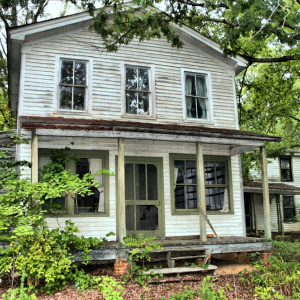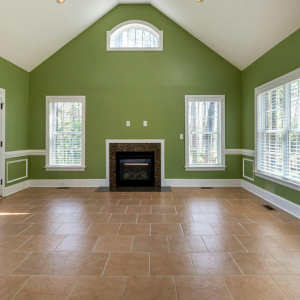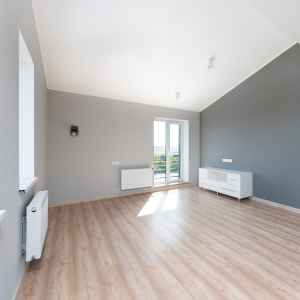
Understanding Property Vacancy Laws in Houston, Texas

To avoid penalties, it’s important to comply with Texas property vacancy laws when leaving your Houston home vacant. In Houston, homeowners must be aware of property maintenance ordinances, security requirements, and any registration mandates that may apply to unoccupied homes.
The city may require vacant properties to meet upkeep standards, such as maintaining lawns and securing doors and windows, to avoid becoming a nuisance or safety risk. Furthermore, Texas law frequently requires notifying local authorities if a property will be vacant for an extended period of time, especially if it is located in certain homeowners’ associations or deed-restricted communities.
Understanding legal obligations can help owners reduce risks like vandalism and unauthorized occupancy, while also maintaining the safety and aesthetics of vacant properties.
Legal Implications of Leaving a House Unattended in Houston
Leaving a house unattended in Houston has legal implications that homeowners should be aware of to prevent complications. In Houston, city ordinances and state laws impose specific requirements on vacant properties to keep them from becoming nuisances or hazards.
To avoid fines, property owners must maintain their properties in accordance with local building codes, including regular exterior and landscaping maintenance. Furthermore, ensuring that the property is secure is critical, as an unsecured home can attract trespassers or squatters, potentially resulting in legal disputes over property rights.
Homeowners should be aware of insurance implications, as some policies require notification when a property will be vacant for an extended period. Failure to notify the insurance company could result in coverage issues in the event of damage or burglary.
In addition, it’s important to stay current on property taxes and homeowner association fees to prevent liens from being placed on the home. By understanding and proactively managing these legal responsibilities, homeowners can protect their investments and remain in compliance with Houston’s vacant property regulations. If keeping up with these obligations becomes overwhelming, working with investor home buyers in Austin and other cities in Texas can offer a quick and stress-free way to sell the property.
Maximum Duration for Vacant Homes in Houston: Guidelines and Regulations
When planning to leave your Houston home vacant, it’s critical to understand the rules and regulations governing the maximum amount of time a property can be unoccupied. In Houston, homeowners should be aware of potential implications related to insurance policies and neighborhood ordinances when leaving their homes vacant, as there is no specific time limit.
Many insurance companies require homeowners to notify them if their property will be vacant for more than 30 days, as extended vacancies may impact coverage due to increased risks such as vandalism or damage. Local homeowners associations may have specific rules for vacant properties to maintain neighborhood aesthetics and prevent issues like overgrown lawns and neglected maintenance.
Keeping track of these details ensures compliance with local laws and minimizes risks associated with leaving your home unattended in Houston.
Risks of Extended Home Vacancy in Houston’s Real Estate Market
In Houston’s real estate market, homeowners should consider the numerous risks associated with leaving a home vacant for an extended period. The potential for property damage is a significant concern, as it can result from issues such as leaks, pests, or electrical problems that go unnoticed and deteriorate over time.
Furthermore, vacant residences are frequently more susceptible to burglary and vandalism, necessitating the implementation of security measures. It is also possible for the local climate to exacerbate these risks; Houston’s frequent storms and humidity may result in structural damage or mold growth if not promptly addressed.
Additionally, insurance policies may necessitate specific conditions to be satisfied during periods of unoccupied homes, which could potentially impact coverage if those conditions are not met. Homeowners must also be cognizant of city ordinances and homeowner association regulations, which may impose fines or penalties on properties that remain vacant for an extended period without proper maintenance or notification.
It is imperative for individuals who intend to leave their Houston residence unoccupied for an extended period to comprehend these hazards.
Maintaining a Vacant Property: Essential Tips for Homeowners in Houston
To ensure safety and property value preservation, it is necessary to pay close attention to detail and follow local regulations when maintaining a vacant property in Houston. Homeowners should first secure their property by installing strong locks on all doors and windows, as well as considering security systems or surveillance cameras for added protection.
Regular maintenance, such as scheduling visits or hiring a property management service, can address issues like overgrown lawns that may attract unwanted attention or violate neighborhood ordinances. It is also advisable to keep utilities operational, particularly electricity, to allow for periodic checks of appliances and plumbing systems, lowering the risk of damage from leaks or electrical faults.
To avoid fines or legal complications, homeowners must stay up to date on Houston’s specific vacant property laws, such as registration requirements or maintenance standards. Consult an insurance agent to adjust policies to cover potential risks associated with vacant homes.
Taking proactive measures will improve the security and condition of your vacant home, protecting your investment while you are away.
Security Measures for Protecting Your Empty Home in Houston

When you leave your Houston home vacant, it is critical to implement strong security measures to protect your property. Install a comprehensive home security system, including surveillance cameras and motion detectors, to deter potential intruders.
Smart locks and automated lighting systems can create the illusion of occupancy, increasing security. It is critical to notify a trusted neighbor or friend of your absence so that they can monitor the property and collect any mail or packages that may accumulate, as these are telltale signs of an empty house.
To keep the appearance of an occupied home, consider hiring a reputable lawn maintenance company on a regular basis. To increase security, ensure that all windows and doors are securely locked and reinforced with deadbolts or additional locking mechanisms.
Neighborhood watch programs can also help create a community-driven approach to monitoring vacant homes. Finally, keeping valuables out of sight from windows reduces the likelihood of a break-in while you are away from your Houston home.
How Local Ordinances Affect Long-term Home Vacancy in Texas Cities
Local ordinances in Texas cities such as Houston have a significant impact on long-term home vacancy management. Homeowners must be aware of property maintenance codes, which require vacant homes to be in good condition to prevent neighborhood blight and ensure safety.
These regulations frequently require regular lawn care, timely structural repairs, and security measures to prevent unauthorized access. Failure to comply with these ordinances may result in fines or even legal action by local authorities.
Furthermore, some Texas cities may impose vacancy registration requirements, which require homeowners to register vacant properties with city officials. This registration assists municipalities in monitoring unoccupied homes and addressing any associated issues, such as vandalism or squatting.
Understanding these local regulations is essential for homeowners planning to leave their Houston properties vacant for an extended period. It helps ensure compliance, maintain property value, and support neighborhood standards. If managing a vacant home feels overwhelming, learn more about how Sell My House Fast Houston works to see how you can simplify the process and protect your investment.
Preparing Your Home for an Extended Absence: a Houston Checklist
When preparing your Houston home for an extended absence, it is critical to ensure that it is secure and well-maintained to avoid problems. Begin by informing a trustworthy neighbor or friend of your departure so they can keep an eye on the house and report any suspicious activity.
Set up smart home security systems with cameras and alarms to receive real-time alerts. To prevent water damage, turn off the main water valve and, if possible, drain pipes.
Adjust the thermostat to protect against extreme temperatures while conserving energy; in Houston’s climate, 85 degrees in the summer and 60 degrees in the winter is usually sufficient. Arrange for regular lawn maintenance to keep curb appeal and give the impression that someone is home.
To avoid pile-ups that signal vacancy, temporarily halt mail delivery via USPS or have someone collect it on a regular basis. Check local laws regarding vacant properties to ensure compliance with any Houston-specific regulations or ordinances.
Make sure all windows and doors are securely locked, and consider using timers on lights to create the illusion of occupancy in the evening. Taking these precautions improves both the safety and security of your Houston home while you are away.
Managing Utilities and Services for a Vacant House in Texas
In Texas, especially in a busy city like Houston, it takes a lot of planning to keep a vacant house’s utilities and services running smoothly and safely. To keep important functions running while avoiding extra costs, it’s important to disconnect or change utility services.
To protect against extreme weather that could damage your home, like freezing pipes during unexpected cold spells, you might want to set the thermostat to a moderate temperature. If you can, drain the water systems. If not, turning off the main valve can help keep pipes from leaking or bursting.
Having trusted neighbors or local service providers check on things on a regular basis can make sure that any problems are fixed right away. Your security systems should stay on. Letting your security company know that the house is empty will help them respond quickly if alarms go off.
Additionally, keeping up with lawn and landscaping services makes the property look occupied and keeps people from breaking in. To avoid getting a lot of mail that makes it look like your home is empty, think about forwarding your mail or stopping delivery for a while.
Taking care of these utilities and services properly can help keep your Houston home safe while it’s empty and protect it from the kinds of risks that come with Texas homes that are empty.
Financial Considerations When Leaving Your Home Empty Long-term
Considering the financial implications of leaving your Houston home vacant for an extended period is essential to prevent unforeseen expenses. To begin, it is important to review your homeowners insurance policy to confirm that it includes coverage for unoccupied properties. This is because numerous insurers impose supplementary coverage requirements or charge higher premiums.
Consider engaging a property management company to supervise routine inspections and maintenance tasks, such as landscaping, in order to prevent costly damage from neglected issues like water leaks or infestations. Maintaining the property’s condition and preventing issues such as mold growth may necessitate a minimal level of heating or air conditioning, even when the home is vacant. Consider utility costs.
It’s also essential to review Houston’s local property tax regulations to understand the possible implications of leaving your home vacant for an extended time. Some areas impose different tax rates or penalties on unoccupied properties. Staying informed about these financial details is key to protecting your investment and avoiding unexpected costs. If managing a vacant property becomes too challenging, Sell My House Fast Houston can help simplify the process and provide a faster solution.
How Long Before a House Is Considered Abandoned in Texas?

For homeowners in Texas who plan to leave their Houston property empty, it’s important to know when a house is considered abandoned. Texas law says that a property can be considered abandoned if it has been empty for a long time and there is no sign that the owner plans to return.
In general, this time frame can change based on local laws and the specific situation of the property. If homeowners don’t pay their property taxes, don’t keep up with maintenance, or cut off utilities, their home could be classified as abandoned more quickly.
Also, squatters’ rights under adverse possession laws can make things more complicated if someone lives in the empty house without permission for three years or more. So, homeowners in Houston who are leaving their homes empty need to stay up to date on state and local laws, check on the property regularly, and make sure they meet all of their legal obligations to keep their home from being classified as abandoned in Texas.
How Long Can a House Stay Unoccupied?
When leaving your Houston home unoccupied, it’s critical to know how long a house can be vacant without causing legal or insurance issues. Insurance companies consider a home vacant if it has been unoccupied for more than 30-60 days.
During this time, the risk of vandalism, theft, and unnoticed maintenance issues rises dramatically. To mitigate these risks and maintain coverage, homeowners should consult their insurance policy and, if necessary, obtain a vacancy permit.
Understanding Houston’s local ordinances on property maintenance and security is essential to avoid potential fines while a home sits vacant. Scheduling regular check-ins through a reliable neighbor or property management service can help ensure the property remains secure and well-maintained. For a quicker solution, working with a cash for houses company in Houston and surrounding Texas cities can help you sell the property fast and avoid the ongoing responsibilities that come with vacancies.
By following these guidelines and taking legal and safety precautions, you can safely leave your Houston home vacant for an extended period of time.
What Could Go Wrong with a House That Sits Vacant for 3 Years?
Leaving a house vacant for an extended period of time, such as three years, can cause a number of issues that Houston homeowners should be aware of. A vacant home is vulnerable to security threats, including vandalism and theft, as criminals frequently target unoccupied properties.
Additionally, a lack of regular maintenance can cause significant property damage. If plumbing systems are not properly winterized, they may leak or burst.
Without regular maintenance, electrical systems may degrade over time. Furthermore, Houston’s humid climate can promote mold and mildew growth in an unventilated home, necessitating costly remediation efforts.
Pest infestations are another common issue in vacant houses, with rodents and insects taking advantage of the unoccupied space. Furthermore, insurance policies may require that homes be occupied in order for coverage to remain valid; as a result, owners risk losing financial protection against potential damages.
It is critical for homeowners considering leaving their property vacant to understand the risks and take preventative measures to protect their investment in the long run.
Helpful Houston Blog Articles
- Short Sales To Relatives In Houston, TX
- How to Remove Bad Tenants in Houston, TX
- Appraisal Required Repairs For Houston, TX
- Leaving Your Houston, TX, Home Vacant
- Sell Your House In Forbearance In Houston, TX
- Selling A House With Foundation Problems In Houston, TX
- Paperwork For Selling Your Houston, TX, Home By Owner
- Selling Your Inherited House In Houston, TX
- Guide To Selling Your Houston, TX, Home By Owner
- Effective Strategies To Prevent Home Foreclosure In Houston, TX
- Property Management Professionals In Houston, TX
- Family-friendly Activities In Houston, TX
- Understanding Houston, TX Property Tax Rates

| LONE STAR STATE | INSURING | ILLEGAL ACTIVITY | SECURITY RISKS | RUBBISH | GARBAGE |
| TRASH | SOLID WASTE | VACANT HOME INSURANCE | HOME INSURANCE | TAXATION | THIEVES |
| RENTERS | RENTAL INCOME | RENTING | PROPERTY VALUATIONS | VALUATION | HOMEOWNER ASSOCIATIONS |
| HOAS | HOMEOWNER ASSOCIATIONS (HOAS) | SURVEILLANCE SYSTEMS | RATS | PROPERTY OWNERSHIP | |
| OWNERSHIP | HOMELESSNESS | HOMELESS | FLOOD | FLOODING | FLOOD RISK |
| EMERGENCY | EMERGENCIES | DEPRECIATION | BURGLARS | CRIMINAL DAMAGE | MORTGAGE |
| MORTGAGE LOAN | ATTORNEY | HEALTH | FIRE HAZARDS | TAX LIENS | PROFITABILITY |
| PROFIT | MONEY | INCOME | SECURITY CAMERAS | WINDS | STATISTICS |
| SENSORS | ROOFS | RAINFALL | NATURAL DISASTERS | MOTION SENSORS | LOCKOUTS |
| LOAN | INFORMATION | EMERGENCY PLAN |
